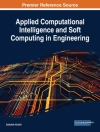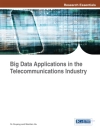This volume contains original submissions on the development and application of molecular imaging computing. The editors invited authors to submit high-quality contributions on a wide range of topics including, but not limited to:
• Image Synthesis & Reconstruction of Emission Tomography (PET, SPECT) and other Molecular Imaging Modalities
• Molecular Imaging Enhancement
• Data Analysis of Clinical & Pre-clinical Molecular Imaging
• Multi-Modal Image Processing (PET/CT, PET/MR, SPECT/CT, etc.)
• Machine Learning and Data Mining in Molecular Imaging.
Molecular imaging is an evolving clinical and research discipline enabling the visualization, characterization and quantification of biological processes taking place at the cellular and subcellular levels within intact living subjects. Computational methods play an important role in the development of molecular imaging, from image synthesis to data analysis and from clinical diagnosis to therapy individualization.
This work will bring readers from academia and industry up to date on the most recent developments in this field.
Table des matières
Part 1 – Computational Methods.- A Review of Computational Methods for Molecular Imaging, by Fei Gao, Pengcheng Shi.- Fuzzy Connectedness Image Co-Segmentation for Hybrid PET/MRI and PET/CT Scans, by Ziyue Xu, Ulas Bagci, Jayaram Udupa, Daniel Mollura.- PET/MRI/VCT: Restoration of Virtual CT from Transmission Scan on PET/MRI using Joint-Anisotropic Diffusion, by Kuangyu Shi, Xiaoyin Cheng, Nassir Navab, Stefan Foerster, Sibylle I. Ziegler.- Large Scale Simplex Optimisation to Accelerate Kinetic Analysis, by Nicholas Dowson, Paul Thomas, Jye Smith, Olivier Salvado, Stephen Rose.- Gradient Projection for Regularized Cryo-Electron Tomographic Reconstruction, by Shadi Albarqouni, Tobias Lasser, Weaam Alkhaldi, Ashraf Al-Amoudi, Nassir Navab.- Joint direct motion estimation/kinetic images reconstruction from gated PET data, by Alexandre Bousse, Jieqing Jiao, Kris Thielemans, Sebastien Ourselin, David Atkinson, Brian Hutton.- Effect of the Mouth Motion in the Attenuation Correction in Neurological PET Studies, by Joaquin Herraiz, Angel Torrado-Carvajal, Norberto Malpica, Juan Hernandez-Tamames.- Dual Estimation of Activity Maps and Kinetic Parameters for Dynamic PET Imaging, by Jingjia Xu, Huafeng Liu, Pengcheng Shi, Fei Gao.- Time-Activity Curve based Sinogram Decomposition for Streak Artifacts Reduction in Dynamic PET Reconstruction, by Xiaoyin Cheng, Jun Liu, Jakob Vogel, Zhen Liu, Nassir Navab, Sibylle Ziegler, Kuangyu Shi.- Part 2 – Clinical Applications.- 4-D PET-MR with Volumetric Navigators and Compressed Sensing, by Stefano Pedemonte, Ciprian Catana, Koen Van Leemput.- Robust Feature Selection to Predict Lung Tumor Recurrence Hongmei Mi, Caroline Petitjean, Pierre Vera, Su Ruan.- Region-based Data-driven Intensity Normalization for Group Comparison of Functional Brain Images, by Zhiyong Xie, Aijun Zhu, Laigao Chen, Timothy Mc Carthy.- A reaction-diffusion simulation model of 18F-FDG PET imaging for the quantitative interpretation ofcancerous metabolism, by Qian Wang, Zhen Liu, Sibylle I. Ziegler, Kuangyu Shi.- Generation of MR-based Attenuation Correction Map of PET Images in the Brain Employing Joint Segmentation of Skull and Soft-Tissue from Single Short-TE MR Imaging Modality, by Anahita Fathi Kazerooni, Mohammad Hadi A’arabi, Hamidreza Saligheh Rad.- Query by Image of Brain SPECT Database, by David Wack, Feyza Erenler, Robert Miletich.- Age-related Glucose Metabolism Changes in Brain, by Xiaoyan Shen, Zhiliang Liu, Zhenghui Hu, Huafeng Liu.- Investigation of Single- Versus Joint-Modality PET-MR Registration for 18F-Florbetapir Quantification: Application to Alzheimer’s Disease, by Liam Cattell, Julia Schnabel, Jerome Declerck, Chloe Hutton.












